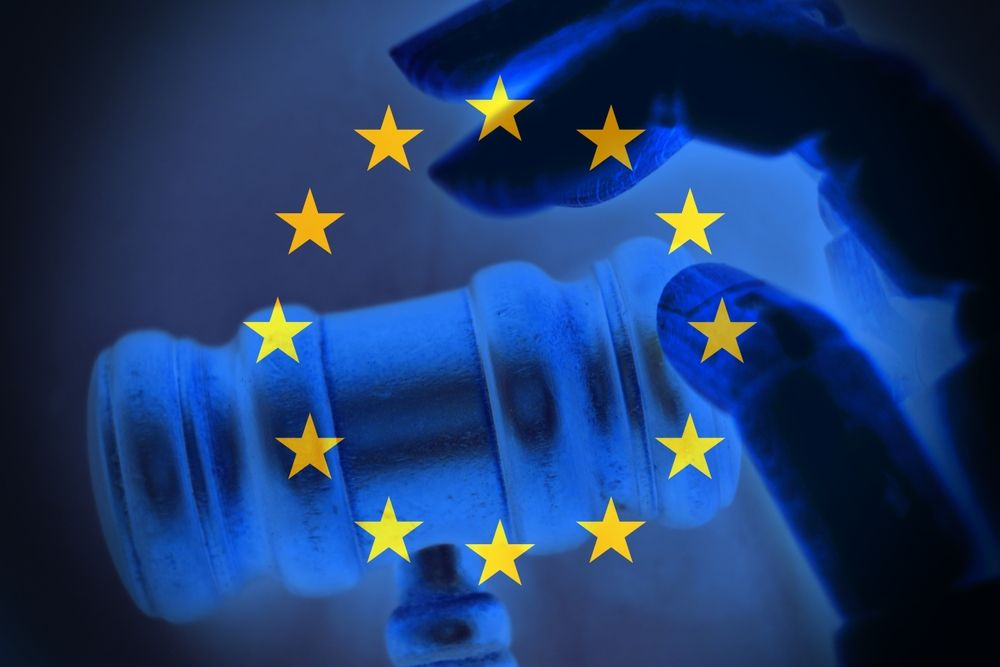The EU General Product Safety Regulation Explained: Compliance Made Simple

In December 2024, new regulations impacting businesses and consumer products within the EU are taking full effect. This update, known as the General Product Safety Regulation (GPSR), aims to modernise the existing safety standards, replacing the former General Product Safety Directive (GPSD). The GPSR introduces detailed obligations for businesses manufacturing, importing, and distributing consumer goods, intending to create a safer market environment across Europe.
This article provides an overview of the GPSR, outlining its coverage, main requirements, and implications for businesses. If you’re a UK-based company selling goods within the EU or Northern Ireland, understanding the GPSR is essential to ensure compliance and avoid potential penalties.
Key Points of the General Product Safety Regulation
Effective Date and Transition Period
The GPSR officially came into force on 12th June 2023, with compliance required by 13th December 2024. During this transition period, products already on the market that meet the standards of the previous directive (GPSD) may still be sold. However, all goods marketed after December 2024 must adhere to the new GPSR standards.
Products Covered
The GPSR applies to most consumer goods available within the EU and Northern Ireland, specifically covering items that are not regulated under other EU directives, such as the regulations governing electrical equipment, toys, cosmetics, and food products. It includes a range of goods, particularly those that consumers use regularly or in the home. For example:
- Children’s products: cots, highchairs, prams and bunk beds
- Household goods: crockery, cutlery, cooking utensils, furniture and soft furnishings
- DIY tools and garden equipment
- Personal items: clothing, hobby materials, candles and decorative items
Additionally, products that may traditionally be intended for professional use but are accessible to consumers, like gym equipment or highchairs in restaurants, also fall under the GPSR. This scope includes not only new items but also used, repaired, or reconditioned products.
Exclusions from GPSR
The GPSR does not apply to products already governed by specific EU regulations, such as electronic devices, toys, and food products. Instead, these items remain subject to their established guidelines.
Who Must Comply?
Under the GPSR, specific roles—referred to as “economic operators”—are assigned defined responsibilities, ensuring that products meet safety standards before reaching consumers. The primary stakeholders include:
1. Manufacturers: Those who produce consumer goods and are primarily responsible for ensuring product safety.
2. Importers: Entities that import products into the EU and Northern Ireland, ensuring these meet GPSR compliance.
3. Distributors: Businesses involved in distributing products to retailers or consumers.
4. Authorised Representatives: Required for companies that are not physically based in the EU, serving as the link between the manufacturer and the EU market.

Major Requirements under the GPSR
Each category of economic operators has specific obligations to fulfil under the GPSR. Here are the primary responsibilities that businesses must address:
1. Safety Assessment and Documentation
Manufacturers must conduct a comprehensive safety assessment for each product, backed by technical documentation demonstrating compliance with safety standards. This documentation must be kept for ten years from the product’s release to the market. This involves evaluating potential risks, testing safety under typical usage conditions, and maintaining records of these tests and risk evaluations.
2. Appointment of a Responsible Person
For businesses based outside the EU but selling within its boundaries, the GPSR requires the designation of a Responsible Person (or Authorised Representative) within the EU. This individual, appointed through a written mandate, will act on behalf of the manufacturer to ensure GPSR compliance, handling issues like product recalls and consumer safety complaints.
3. Labelling and Safety Information
All products must be clearly labelled with the contact details of the economic operator and, if applicable, the Responsible Person. This includes the name, trademark, and EU-based address. Safety instructions and other relevant information must be provided in the local language of the market where the product is sold. This requirement is particularly important for products with potential safety risks, as it ensures consumers can quickly access assistance if issues arise.
4. Online Sales and Marketplaces
For businesses selling online, GPSR sets forth specific rules to maintain transparency and consumer safety. Online sellers must display accurate product images, safety information, and the contact details of the economic operator. Importantly, online marketplaces like Amazon or eBay must register with the Safety Gate Portal, formerly known as the RAPEX system, which alerts consumers to unsafe products.
These platforms must also provide a single point of contact where consumers and authorities can report safety concerns or request product information, thereby improving transparency in online transactions.
5. Handling Consumer Complaints and Product Recalls
A crucial component of the GPSR is its emphasis on post-market safety management. Manufacturers must set up accessible communication channels, such as a phone line or email address, to handle consumer complaints or reports of safety issues. Additionally, businesses must have a robust recall procedure that complies with GPSR guidelines if a product defect or safety hazard is identified.
Preparing for Compliance: A Checklist for UK Businesses
If you’re a UK-based business intending to sell consumer goods within the EU or Northern Ireland, here’s a checklist to help ensure GPSR compliance:
1. Identify Product Coverage: Determine whether your products are subject to GPSR or other EU regulations.
2. Define Your Role as an Economic Operator: Are you a manufacturer, importer, distributor, or online seller? Each role has distinct responsibilities.
3. Ensure Product Safety: Conduct safety assessments and maintain technical documentation for each product.
4. Label Products Correctly: Ensure labels include your contact details and safety information in the appropriate language.
5. Provide Clear Online Information: If you sell online, verify that your website or platform provides adequate product details, safety information, and operator contact details.
6. Understand Marketplace Requirements: Familiarise yourself with the obligations of online marketplaces if you use them for sales.
7. Appoint an EU-Based Representative: If not based in the EU, arrange for an Authorised Representative within the region.
8. Establish Recall and Complaint Management Protocols: Prepare a system for managing complaints and recalls that aligns with GPSR requirements.
Available Resources for GPSR Compliance
While the GPSR may seem complex, numerous resources are available to help businesses navigate compliance. Companies specialising in product compliance and certification offer guidance, particularly for those needing an independent Authorised Representative. The full text of the GPSR regulation, along with specific industry guidance, is also accessible through official EU websites and industry compliance resources.
Staying Compliant and Ensuring Consumer Safety
The EU’s GPSR reflects a significant advancement in consumer protection, extending the accountability of product safety across a broader range of goods and encompassing new responsibilities for online sales. By meeting GPSR standards, businesses contribute to a safer consumer market while safeguarding their reputation and minimising the risk of penalties associated with non-compliance.
Post-December 2024, businesses must focus on addressing any unmet compliance requirements by evaluating their products, supply chains, and sales channels. Key steps include confirming product safety, updating documentation, and designating a Responsible Person where needed, ensuring a smooth transition to the updated regulatory standards.
For companies that are proactive, the GPSR offers an opportunity to build consumer trust and demonstrate a commitment to safety—critical values in today’s marketplace.
Are you eager to share your expertise? We’re seeking guest contributors to provide fresh perspectives, insightful analysis and innovative ideas for our retail blog.
Whether you're a well known thought leader or an emerging voice in the industry, we’d love to feature your work. Topics of interest include retail trends, technology innovations, supply chain sustainability and more.
This is your opportunity to showcase your knowledge to a diverse and engaged audience while contributing to meaningful conversations. To learn more and submit your pitch, contact us today!

)
)
)
)
)
)
)
)
)
)
)
)
)
)
)
)
)
)
)
)
)
)
)
)
)
)
)